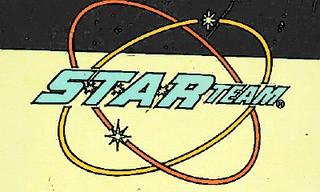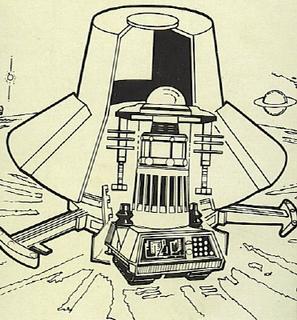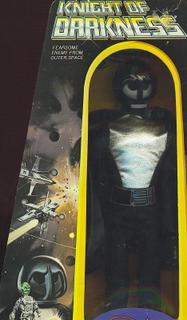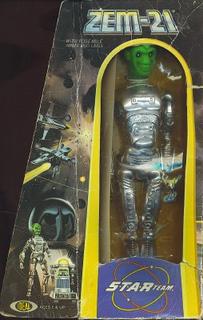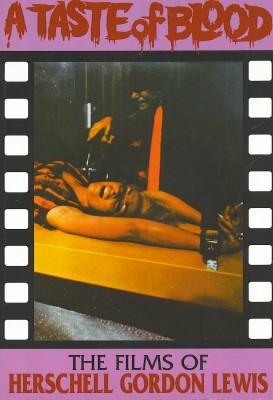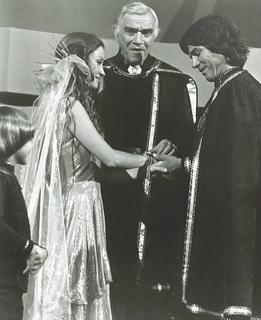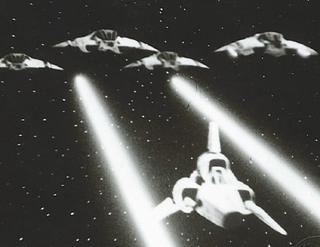
In December, Peter Jackson (Lord of the Rings; Bad Taste) unveils to the world his remake of the 1933 fantasy masterpiece King Kong. No doubt it will be the ticket to beat at the box office come Christmas time. But I must wonder, will long-time Kong fans respond to this new film the way they did when King Kong was first re-made almost thirty years ago, back in 1976? That film was also a big Christmas time ticket, made with the (then...) most current special effects, and a big budget.
Granted, this new, 2005 Kong looks more faithful than the John Guillermin, Dino De Laurentiis remake of 1976, being set in the 1930s like the original, but as a child of the 1970s - and at the risk of incurring the wrath of the purists - there's still something special about the disco decade version of the film. It still holds a special place in this Generation X'er's heart. It's the version I (and many others...) grew up with, so I'm not ashamed to say I like it. That is not a view shared by many long-time genre fans, however. In fact, I remember I once had a book editor who called it a "bomb" and said that I couldn't refer to it in one of my books, because it wasn't the real Kong. That's the sort of nonsense I occasionally run into when the older generation attempts to keep its icons at the top of the heap, at the expense of my generation's.
As director John Guillermin noted in Starlog # 160, in an interview with Lowell Goldman (November 1990, page 61), "The film simply isn't allowed to speak for itself...It was totally different from the original, which is now considered a classic. That was an enormous thing to overcome..."
But that's all prologue. The 1976 King Kong starring Jeff Bridges, Charles Grodin and Jessica Lange is actually a very strong film - at least from an objective critical opinion - because it accomplishes what few remakes have: it takes all the elements that made the material so strong and powerful in the 1930s, and then updates those elements for the world of the 1970s. The original film - made and set during the Great Depression - showcased a magnficent fantasy to find and bring back something to the civilized world that had never before been seen - "The Eighth Wonder of the World," and all that. In general, the attitude was one of American ingenuity, can-do and bravura as Carl Denham, with his new-fangled gas grenades, braved a dangerous (read non-white, non Christian...) world to bring back surpreme entertainment for a proud people who had been brought low by economic misfortune. The original (and brilliant...) film was about man against beast, man against nature, and in it America strode above the world. Our airplanes - our superior technology - finally took down Kong during an "attack" on our City, and there was little doubt about the value of American might.
It would have been very difficult to tell that same story in the 1970s Kong, and it was wise of the filmmakers to choose otherwise. As the disco decade commenced, there was not Depression, but an an Energy Crisis. The Vietnam War had discolored permanently American attitudes about foreign intervention, and the fall of President Nixon because of Watergate disillusioned Americans who believed that a president was supposed to be a "hero."
Thus it is appropriate and interesting that the King Kong of our Bicentennial year featured a journey not of open-ended exploration aboard a ship called "Venture," but rather one of desperation, a search for limited resources serving as the reason behind visiting Kong's island. And since the Watergate scandal had fueled cynicism about authority figures, Lorenzo Semple's screenplay re-imagined moviemaker Carl Denham as Fred Wilson, someone far less trustworthy; an anti-hero, an opportunist, a greedy, nature-raping corporate type. This is what Richard Eder of The New York Times wrote about King Kong's thematic shift from the 1930s to the 1970s in his story "Hollywood is Having an Affair with the Anti-Hero" (January 2, 1977, Section 2, page 1):
"The impulse to explore, to discover, to bring back what you've discovered [ - that which we found in] the first King Kong is now replaced by simple greed - the greed of the oil company representative Fred Wilson, to find a gusher; his greed in trying to convert King Kong into a gusher of a different sort."
He's right, and beyond that, the mission to Skull Island in the remake serves also as an allegory for American involvement in Vietnam. It is a mission whereby the enemy is neither understood nor respected, but deadly and powerful nonetheless. "Six of my guys are cut off in the bush and you're building monkey traps?" one shell-shocked Kong hunter complains to Wilson at a critical moment, making the Vietnam connection clear. Thus, the audience detects Wilson is applying, or rather mis-applying, American technology in a so-called "primitive" land without comprehending the consequences of his actions. His men may as well be soldiers out there "in the bush," trying to fight an enemy who is smarter than his appearance lets on. Many of 'em learn the error of their ways on a fallen log connecting the two walls of a ravine...
But the 1970s King Kong also goes far beyond the original in another way. The first film utilized show business as the avenue to Kong's island. In the Great Depression, many moviegoers forgot their troubles in the darkness of of movie theatres, and King Kong was the latest such diversion. In the re-make, corporations exploit the "show business," celebrity-driven, commercial culture of America in the 1970s. Wilson is both an oil company executive and the host of the Kong party. Dwan - Kong's lady love in this version - is a failed actress hoping to achieve her 15 minutes of fame; obsessed with her own celebrity. The oil company requires a mascot, and so the mighty Kong himself becomes a celebrity of sorts. Yet all these characters become trapped by their prominence in the public eye: Wilson is crushed by Kong while performing his duties as host; Dwan loses Jack - the man she loves; and Kong is murdered when he breaks fee of his commercial shackles. This time, his murder does not champion technology and American might, but is seen as a tragedy, or as Jack Prescott (Jeff Bridges) calls it, " a farce." The helicopters circle and destroy a proud animal, one who should never have been brought to the States. In the 1970s Kong, even the final attack is a mis-application of American power.
Considering these points, the 1970s King Kong is evocative of a far less romantic aesthetic than that imagined in the early 1930s. For all the free love and sexual revolutions of the 1960s and the 1970s, as a nation we were much less romantic and idealistic than we were in the 1930s, and this King Kong reflects that fact. King Kong fans may prefer the more child-like, wondrous, fantasy-world imagined by the 1930s adventure (in part because they experienced it in their youth...), but the 1970s version reflects a different (but no less valuable) Zeitgeist. It is the "cynical" and "realistic" version of King Kong; in contrast to the fantasy version of the Great Depression.
This is just one reason to laud the remake. It could have tried - note for note - to accomplish the exact same thing as the 1930s version. Instead, we get a companion piece that speaks powerfully to a different generation and a different time. The remake attempts to expand and re-imagine Kong's universe (and importance to American myth...) rather than merely rehash that which cannot be surpassed...the fantastic original. Where the new Kong really succeeds, perhaps, is in the humanization and sentimentalization of Kong. During the conclusion on the World Trade Centers, the mighty ape is literally a guy fighting City Hall.
So this cynical, post-Watergate, post-Vietnam, Energy Crisis era King Kong is as much a product and reflection of its time as was the original, but in the 21st century, it is - ironically - the 1970s Kong that still resonates with us and carries such currency. The Energy Crisis of 2005, the quagmire in the Iraq War -- these are all "remakes" of 1970s issues, aren't they? And so the Guillermin Kong seems more timely than ever. And in an age where CGI monsters evoke little human feeling, this depiction of the mighty Kong still pulls at the heartstrings. He may appear low-tech in the age of Jar-Jar Binks and Gollum, but low-tech isn't always such a bad thing.
I look forward to Peter Jackson's revival of Kong, and I hope the director remembers that audiences require a King Kong for 2005, one that speaks to us the way the 1976 version spoke to audiences of that age. We don't need a light, fluffy, nostalgic Kong that accomplishes exactly the same things as the original film. Because, after all, we already have seen that movie, and you just can't beat a masterpiece by copying it note for note. So that's why I appreciate the 1970s version. It is different from its progenitor, and bold in those differences. It serves to remind us how King Kong - as a cornerstone of American modern mythology - can adapt with the times and remain valuable.







